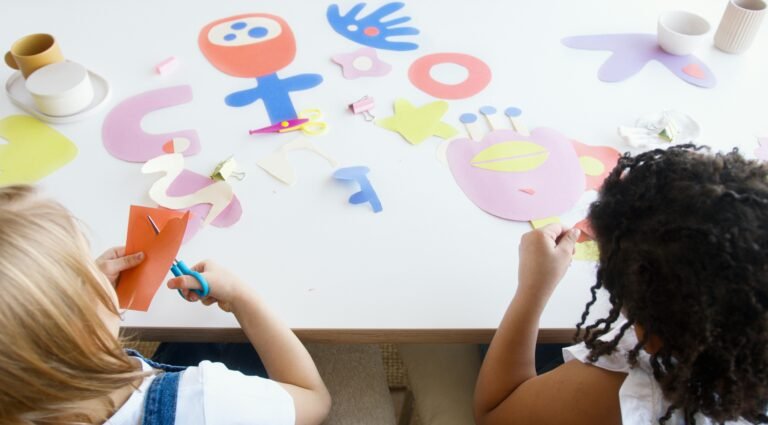
Photo Credit (Gettyimages)
Do you frequently find yourself jumping about from one task to another, usually without actually paying attention to anything? You’re not by yourself. It has become the standard in our fast-paced world. We can find ourselves stuck in a never-ending cycle of overwhelm and tiredness due to our work commitments, domestic responsibilities, and an idealized view of what life “should” be like.
However, what if making a few minor adjustments allowed one to slow down and enjoy life more without sacrificing productivity?
Doesn’t it sound too good to be true?And trust me, I used to think the same thing, but it has stuck with me because, despite my workaholic tendencies (I’m a genuine Capricorn at heart), I’ve discovered that slowing down is not only doable but also a healthier way of living.
Naturally, everyone has a different idea of what slowing down looks like, but I think we can all establish a more organic, slower pace that fits the stage of life we’re in.
Changing habitual habits is easy, but it may require some work. The secret to success is to commit to tiny, regular steps; the payoff is a day with less stress and more tranquility, so it’s worth it.
In light of that, I’ve included a few easy pointers to get you going. Please make use of them to start your own research and path toward living a more leisurely and pleasurable life without sacrificing productivity!
END MULTI-TASKING
Did you know that we don’t accomplish more when we multitask? I took years of satisfaction in my ability to multitask, believing it was boosting my output; however, it turns out to be fiction! Research has demonstrated that it is, in fact, less productive and distracting, and experts now call it task-switching.
Therefore, it is generally preferable to concentrate on one item at a time. It takes some getting accustomed to, but mono-tasking, also called single-tasking, improves focus, lowers anxiety, and, in my experience, helps me do more.
Start by looking at your “to-do” list and ranking the top three things. Set aside a specific amount of time for each task, and then focus only on it during that period. Turn off your phone’s notifications and put it in a drawer until you’re done to cut down on outside distractions.
Inhale
How often do you experience anxiety or overwhelm each day? It’s too many for the majority of us. Fortunately, we have our breath, which is a blessing. The next time you feel overwhelmed by your emotions, stop, take a deep breath through your nose, hold it for a moment, and then slowly release it through your nose. Repeat a few times, and you’ll start to feel more at ease. This technique is particularly useful, in my experience, when you need to collect yourself and feel more at ease but are unable to leave a circumstance or space.
GO SLOWLY ON THE ROAD
For most of us, driving takes up a lot of time. Driving more slowly can make us feel less stressed and more at ease when we get to our destination. Try listening to an uplifting podcast or switching to music that promotes peace. Make sure your automobile is free of clutter. Diffuse an essential oil that makes you feel happy and at ease; my favorites are lavender and sweet orange. Additionally, take three deep breaths throughout the period at traffic lights to help you concentrate on the here and now rather than allowing your thoughts to wander.
CREATE A WHITE AREA
Although it’s normal to feel resistant to doing this, making time each day for a little white space allows you to take a moment to collect your thoughts, which reduces tension and worry. Develop the habit throughout the day. Spend five minutes by yourself before the school run or during lunch.Just stop, breathe deeply, and re-establish a connection between your body and mind.
CHANGE YOUR MORNING PROCEDURE
Get a good night’s sleep the night before; try eating a little lighter and turn off all blue lights (phone, TV, and screens) at least an hour before bed. It also aids in cutting back on caffeine and alcohol. Eliminate everything superfluous from your morning routine, or do it the night before. Every morning, try setting aside a short period of time for yourself. That might be as easy as taking a few more minutes to enjoy a shower or sipping your morning tea leisurely in the garden. Here are some additional pointers to help you take back your mornings.
Pay attention to what you eat.
It’s crazy that we absorb more knowledge every day than our grandparents did in their lifetimes! Although technology aids in the dissemination of this volume of information, the human brain is still lagging behind and is unable to process the abundance of knowledge. It’s crucial to take a break and continue to be aware of what we’re putting into our brains because of this.
Consider whether the food you eat is promoting your mental well-being and enabling you to proceed or if it makes you feel stressed and overburdened.
For the following seven days, pay attention to what you eat, evaluate if the information is good or bad, and think about how it makes you feel. After that, consider cutting back on the information you take in. You’ll be surprised at how much better you feel and how much more time you have if you do this gradually but steadily.
Would you like to try slowing down and enjoying life more? To support others, please share any habits you already have that help you accomplish this in the comments section below.


